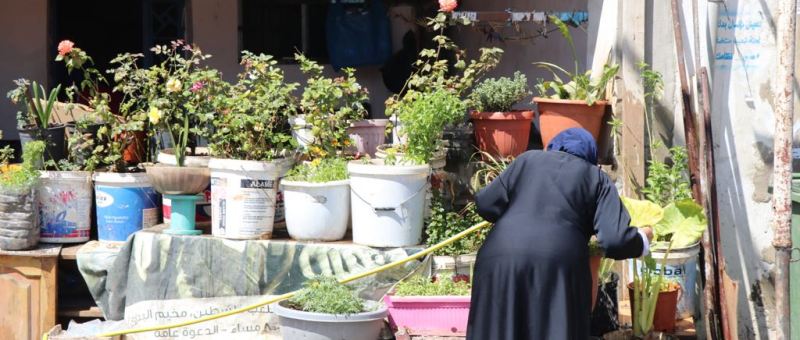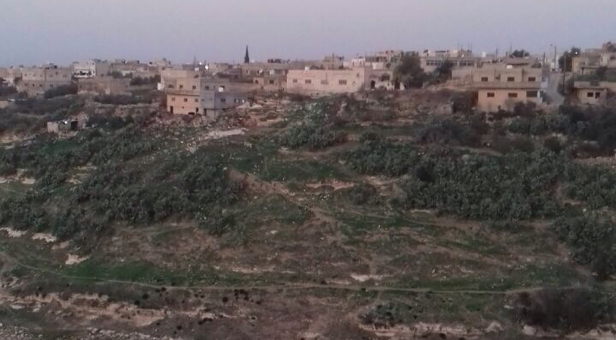Refugee Imaginaries: Research Across the Humanities ‘explores how refugees imagine the world and how the world imagines them.’ Through a collection of over 30 chapters, co-edited by Refugee Hosts Co-Investigator Prof. Lyndsey Stonebridge, and written by experts from a range of disciplines, the book places ‘refugee imaginaries at the centre of interdisciplinary exchange’ and ‘demonstrates…
Tag: Photography
Moving Objects Symposium and Exhibition Launch
The Refugee Hosts project is delighted to invite you to join us for the Moving Objects symposium and exhibition launch event on the 14th March at University College London. Both events will provide an opportunity to reflect on the exhibition, and our project's own work with displaced communities in Lebanon and Jordan, whose involvement is…
The Third Voice and Third Eye in our Photo-Poetic Reflections
The Third Voice and Third Eye in our Photo-Poetic Reflections by Yousif M. Qasmiyeh (University of Oxford) and Prof. Elena Fiddian-Qasmiyeh (Refugee Hosts) A shared surname both reflects and itself has produced diverse forms of creative intimacies in a range of research and non-research encounters. In a series of photo-poetic reflections published as part of…
Shadows and Echoes in/of Displacement
Shadows and Echoes in/of Displacement: Temporalities, spatialities and materialities of displacement by Prof. Elena Fiddian-Qasmiyeh, Refugee Hosts In line with our project's Spaces and Places not Faces approach to representation, a key question arising in Refugee Hosts is how we can represent, and conceptualise, the 'field-sites' where we are conducting research. Through diverse media -…
Historical Photos of Hamra, Beirut
Refugee Hosts local researcher, Leonie Harsch, has encountered an archive of photos during her extensive mapping of the Hamra neighbourhood in Beirut. In this piece, Leonie reflects on some of these photos, which form the archive of Mukhtar Michel Bekhazi, as a way of approaching questions of hospitality, refugee-host encounters and 'the local'. In particular,…
To the Plants is Her Face
To the Plants is Her Face Yousif M. Qasmiyeh and Elena Fiddian-Qasmiyeh (Refugee Hosts) The plants which appear in this picture hinge partly on a short wall and partly on a used wooden chest of drawers primarily staged to encircle the entrance to the house and protect it from the curious eyes of passers-by. Or…
There will always be a vendor before and after the picture
This piece continues a series of poetic responses to photographs taken by Refugee Hosts PI Dr Elena Fiddian-Qasmiyeh during a field-trip to Baddawi refugee camp and the neighbourhood of Jebel al-Baddawi in North Lebanon, and to a range of neighbourhoods in Beirut in March-April 2018. Written by Refugee Hosts Writer-in-Residence Yousif M. Qasmiyeh and PI Dr Elena Fiddian-Qasmiyeh,…
Mobility, Hope and the ‘Appropriation’ of Space: Reflections from a PhotoVoice Project
Typically, photographs of and about displaced peoples focus on individual suffering victims, acts of individualised resilience, or tropes that resonate with the wider genre of humanitarian narratives. As a result, the Refugee Hosts project has adopted what Dr Elena Fiddian-Qasmiyeh has termed a "Spaces and Places, Not Faces" approach to refugee-photography. As Michelle Lokot explores in…
Anti-Syrian banners and graffiti in context: Racism, counter-racism and solidarity for refugees in Lebanon
By Elena Fiddian-Qasmiyeh, Refugee Hosts PI and UCL In the run up to the Lebanese elections on 6 May 2018, national and international media and human rights organisations have denounced the appearance of anti-Syrian banners across Beirut. Reading “The day will come when we tell the Syrians: gather your things and everything you stole, and…
Photographing Religion and Displacement: UNHCR’s 30 Days of Faith
Introductory reflections by Prof Alastair Ager, Refugee Hosts Co-I (Queen Margaret University) and Dr Elena Fiddian-Qasmiyeh, Refugee Hosts PI (UCL) Humanitarianism is marked by a commitment to principles of impartiality and neutrality. Agencies have often shied away from engagement with religion and its role in the lives of refugees for fear of compromising these principles. However, religion is not just…










You must be logged in to post a comment.